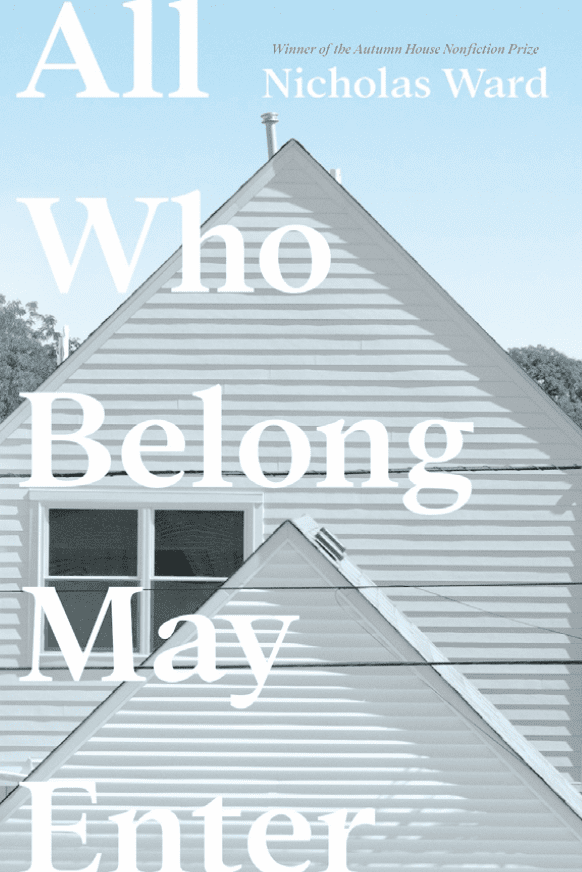By Wyatt Bandt

TELL US A LITTLE ABOUT YOURSELF.
NW: I’m a writer, organizer, arts administrator, cyclist, cat dad, unrepentant sports junkie. I’ve lived my entire life in the Midwest (Michigan, Ohio, Illinois). I live in Chicago, about which many people outside and more than a few inside refuse to tell the truth about.
YOU SEEM TO HAVE ALWAYS BEEN DRAWN TOWARD THE ARTS, HAVING BEEN A THEATRE KID AND LOVING MUSIC. WHEN DID YOU DISCOVER THAT YOU ALSO ENJOYED WRITING?
NW: I’ve always loved the physical act of writing, both the way my pen would fly across my page in school and plunking away at a keyboard. But it wasn’t until I moved to Chicago and linked up with 2nd Story, a Chicago-based storytelling collective, that I began writing and telling stories from my own life. I realized that the act of personal memoir writing, rather than naval-gazing, actually created a pathway for collective culture building.
WHAT DRAWS YOU TOWARD PERSONAL ESSAY VERSUS WRITING IN ANOTHER GENRE?
NW: To me, personal essay writing is what allows me to think through and process the world and how it’s organized. By locating my writing in my own body and my own stories, I allow myself the grace and space to fail, tinker, challenge, re-assess, and dream what might be possible in our world. And by adhering to stories that impacted me deeply and truthfully, that helps me uphold my own fidelity to the material itself.
IN THIS COLLECTION OF ESSAYS, DO YOU HAVE A PERSONAL FAVORITE?
NW: I have favorites for different reasons: “Watch Him Go” because of how it encapsulates my complicated love of sports; “The Dresden” because it was the first story I told to an audience and I’ve rewritten it over and over to suit my changing understanding of the narrative; “Paul and Patti and Me” because it represents the two people I have loved the most, and “I Am Easy to Find” because it brings all the themes of the book together in one long piece.
YOUR ESSAYS ARE VERY WRITING IN ANOTHER GENRE?
NW: To me, personal essay writing is what allows me to think through and process the world and how it’s organized. By locating my writing in my own body and my own stories, I allow myself the grace and space to fail, tinker, challenge, re-assess, and dream what might be possible in our world. And by adhering to stories that impacted me deeply and truthfully, that helps me uphold my own fidelity to the material itself.
IN THIS COLLECTION OF ESSAYS, DO YOU HAVE A PERSONAL FAVORITE?
NW: I have favorites for different reasons: “Watch Him Go” because of how it encapsulates my complicated love of sports; “The Dresden” because it was the first story I told to an audience and I’ve rewritten it over and over to suit my changing understanding of the narrative; “Paul and Patti and Me” because it represents the two people I have loved the most, and “I Am Easy to Find” because it brings all the themes of the book together in one long piece.
YOUR ESSAYS ARE VERY PERSONAL, REMINDING ME OF THE STEREOTYPICAL CONVERSATIONS HAD AT 2:00 AM: RAW AND THERAPEUTIC. YOU TALK ABOUT A LOT OF HARD SUBJECTS AND MEMORIES, AND LAY YOURSELF BARE IN FRONT OF YOUR READERS. WHAT HAS WRITING THIS COLLECTION BEEN LIKE FOR YOU? WHAT CHALLENGES HAVE YOU FACED IN COMPOSING IT?
NW: The act of creation starts from a place of deep emotion, but one thing that I’ve learned over the years is that if I’m not emotionally prepared to start treating my work as a piece of art to be dissected, dismantled, edited, and challenged, then I’m not ready to work on it as a piece of text. I’ve got to be okay with the artistic process playing out fully in order to bring my work to any audience, even if that’s just one person. So, for all of the essays in the book, I had to get myself into that space before really knowing that they could be considered for the final project.
IF YOU COULD HAVE SOMEONE WALK AWAY WITH ONE THING FROM YOUR WRITING, WHAT WOULD IT BE?
NW: I want people to leave thinking about their relationship to systems of power and how they do or do not accept the terms of that deal. I want them to reckon with the stories of their own lives and decide if they are willing or not to be honest about them.
About the Book:

Nicholas Ward’s debut essay collection, All Who Belong May Enter, centers on self exploration and cultural critique. These deeply personal essays examine whiteness, masculinity, and a Midwest upbringing through tales of sporting events, parties, posh (and not-so-posh) restaurant jobs, and the many relationships built and lost along the way. With a storyteller’s spirit, Ward recounts and evaluates the privilege of his upbringing with acumen and vulnerability. Ward’s profound affection for his friends, family, lovers, pets, and particularly for his chosen home, Chicago, shines through. This collection offers readers hope for healing that comes through greater understanding and inquiry into one’s self, relationships, and culture. Through these essays, Ward acknowledges his position within whiteness and masculinity, and he continuously holds himself and the society around him accountable.

Continue Reading…
Article originally Published in the February / March 2022 Issue: New & Upcoming.
